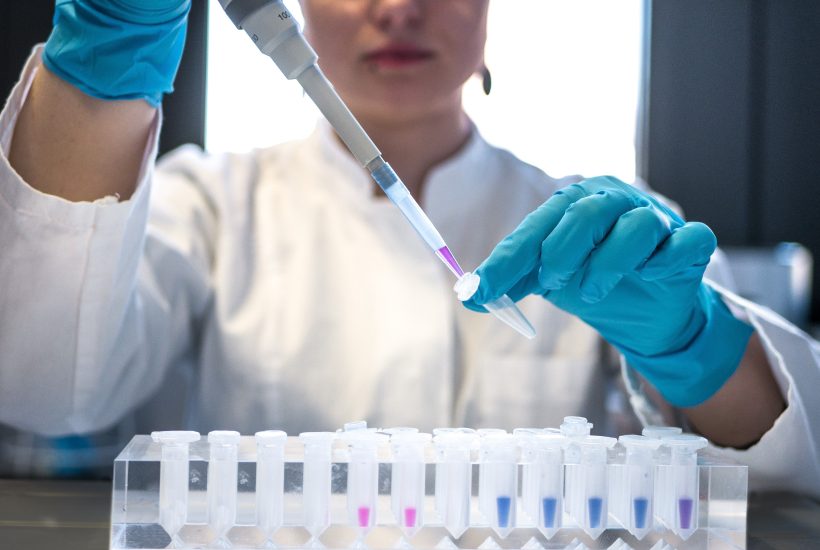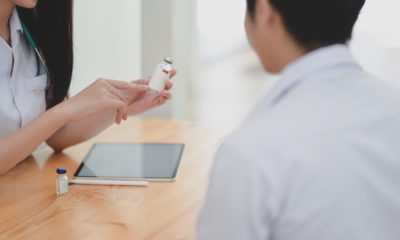Biotech
Spain Registers Over 900 Clinical Trials in 2022, Above Pre-Pandemic Levels
Rare diseases are, despite advances, an important area of development for biomedical research, since only 5% of these pathologies have an available treatment. However, current European legislation has managed to go from the eight orphan drugs available in 2000 to more than 130 drugs today. On the other hand, a total of 166 clinical trials had children or adolescents as patients.

Spain authorized more than 900 clinical trials with drugs in 2022, according to the Spanish Registry of Clinical Studies (Reec), coordinated by the Spanish Agency for Medicines and Health Products (Aemps).
The figure, which could still increase when the definitive data is closed, is higher than that registered in 2018 and 2019, years prior to the pandemic in which 800 clinical studies, respectively 833 clinical studies were authorized, according to Farmaindustria.
86% of these trials were promoted by pharmaceutical companies, whose investment in this item has been increasing in recent years to €789 million, 60% of the total investment in research and development (R&D) of the sector in Spain, as reflected in the latest Survey on R&D Activities. This item has increased at an average cumulative annual rate of 5.3% in the last ten years, going from €470 million in 2011 to nearly €800 million in 2021.
If you want to find more details about the clinical trials that took place in Spain in 2022, download for free our companion app. The Born2Invest mobile app brings you the most important business news in the world, so you can stay on top of the market.
A total of 328 trials focus on drugs to treat cancer, the area with the most studies
Investment in clinical research generates a great virtuous circle since it implies investment in hospitals by the companies promoting the trials; It contributes to the qualification of health professionals, thereby increasing the quality of the provision of our health system, and opens up new possibilities for Spanish patients, for many of whom the participation in a clinical trial can be a unique opportunity to cure his disease.
In the last year, more than a third of the trials, a total of 328, have focused on drugs to treat cancer, the area with the most studies, followed by diseases of the nervous system and pathologies of the immune system. Respiratory, hematological, viral, and cardiovascular diseases were the next in a number of trials in 2022, according to the Reec data.
Rare diseases already account for 25% of the clinical trials carried out in 2022, with a total of 230 trials. This data has evolved significantly in recent years, such that in 2018 there were 73 studies aimed at testing orphan drugs, and in 2019 there were 117 studies.
5% of rare diseases have a treatment available
Rare diseases are, despite advances, an important area of development for biomedical research, since only 5% of these pathologies have an available treatment. However, current European legislation, based on a system of incentives for research by pharmaceutical companies, has managed to go from the eight orphan drugs available in 2000 to more than 130 drugs today.
On the other hand, a total of 166 clinical trials had children or adolescents as patients. The pediatric area is also one of the areas that have grown the most in Spain in recent years, with the number of studies on the rise since 2016, when 108 trials with pediatric drugs were registered, 35% less than last year.
__
(Featured image by Julia Koblitz via Unsplash)
DISCLAIMER: This article was written by a third party contributor and does not reflect the opinion of Born2Invest, its management, staff or its associates. Please review our disclaimer for more information.
This article may include forward-looking statements. These forward-looking statements generally are identified by the words “believe,” “project,” “estimate,” “become,” “plan,” “will,” and similar expressions. These forward-looking statements involve known and unknown risks as well as uncertainties, including those discussed in the following cautionary statements and elsewhere in this article and on this site. Although the Company may believe that its expectations are based on reasonable assumptions, the actual results that the Company may achieve may differ materially from any forward-looking statements, which reflect the opinions of the management of the Company only as of the date hereof. Additionally, please make sure to read these important disclosures.
First published in PlantaDoce, a third-party contributor translated and adapted the article from the original. In case of discrepancy, the original will prevail.
Although we made reasonable efforts to provide accurate translations, some parts may be incorrect. Born2Invest assumes no responsibility for errors, omissions or ambiguities in the translations provided on this website. Any person or entity relying on translated content does so at their own risk. Born2Invest is not responsible for losses caused by such reliance on the accuracy or reliability of translated information. If you wish to report an error or inaccuracy in the translation, we encourage you to contact us.

-

 Crypto1 week ago
Crypto1 week agoCaution Prevails as Bitcoin Nears All-Time High
-

 Africa4 days ago
Africa4 days agoBridging Africa’s Climate Finance Gap: A Roadmap for Green Transformation
-

 Biotech2 weeks ago
Biotech2 weeks agoEcnoglutide Shows Promise as Next-Generation Obesity Treatment
-

 Business2 days ago
Business2 days agoThe TopRanked.io Weekly Digest: What’s Hot in Affiliate Marketing [uMobix Affiliate Program Review]




















